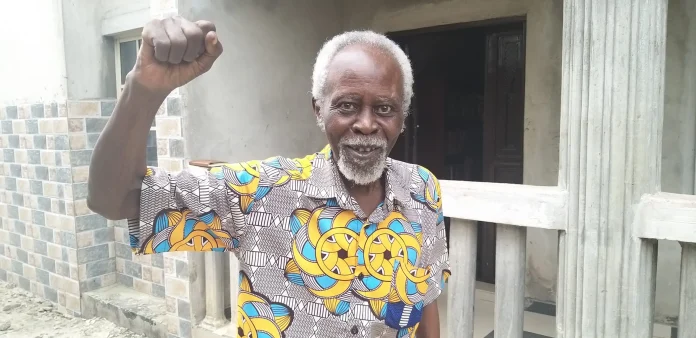Inih Ebong, a Nigerian lecturer wrongfully dismissed by the University of Uyo (Uniuyo) over two decades ago, has achieved a decisive victory in his long-standing legal battle. The Court of Appeal in Calabar, Cross River State, has dismissed Uniuyo’s appeal to delay implementing the 2020 judgment of the National Industrial Court of Nigeria. The ruling mandates the reinstatement of Mr. Ebong and the payment of all his entitlements and damages.
“It’s all over. Everything is over,” declared Nse William, Mr. Ebong’s lawyer, as he confirmed the appellate court’s decision on Tuesday. Expressing his elation, he emphasized, “Wherever there’s a wrong, there’s always a remedy.”
For Mr. Ebong, now 73, the verdict brings long-awaited justice after years of hardship and public vilification. Once an associate professor in Uniuyo’s theatre arts department, he was unjustly dismissed in 2002 following false accusations of abandoning his duties. A vocal critic of corruption and mismanagement within the university, his resistance to malpractice had made him a target.
“This is a monumental victory,” Mr. Ebong said. “The road is now clear for me to enforce the judgment. Whether the vice-chancellor likes it or not, justice will be served.”
His wife, Uduak, reflected on the long struggle: “This battle began when I had my first daughter, who is now 21 and in the university. All three of our children grew up knowing this fight. Today, we can finally celebrate.”
The family credited Nigerian philanthropist Femi Otedola for financing Mr. Ebong’s medical treatment when he was diagnosed with cardiac failure in 2020. Human rights lawyer Inibehe Effiong was also praised for his unwavering support throughout the ordeal.
The National Industrial Court’s 2020 ruling had found Uniuyo’s actions to be malicious and unlawful, ordering the university to reinstate Mr. Ebong, pay him damages of ₦10 million, and provide all salaries and allowances withheld since 2001. Despite repeated appeals by the university, the Court of Appeal upheld the decision, leaving Uniuyo with no further recourse.
The dismissal of the final appeal has solidified the lecturer’s right to justice, with the university now obligated to comply with the court’s directives. As the chapter closes, Mr. Ebong’s story stands as a testament to resilience in the face of institutional injustice.

